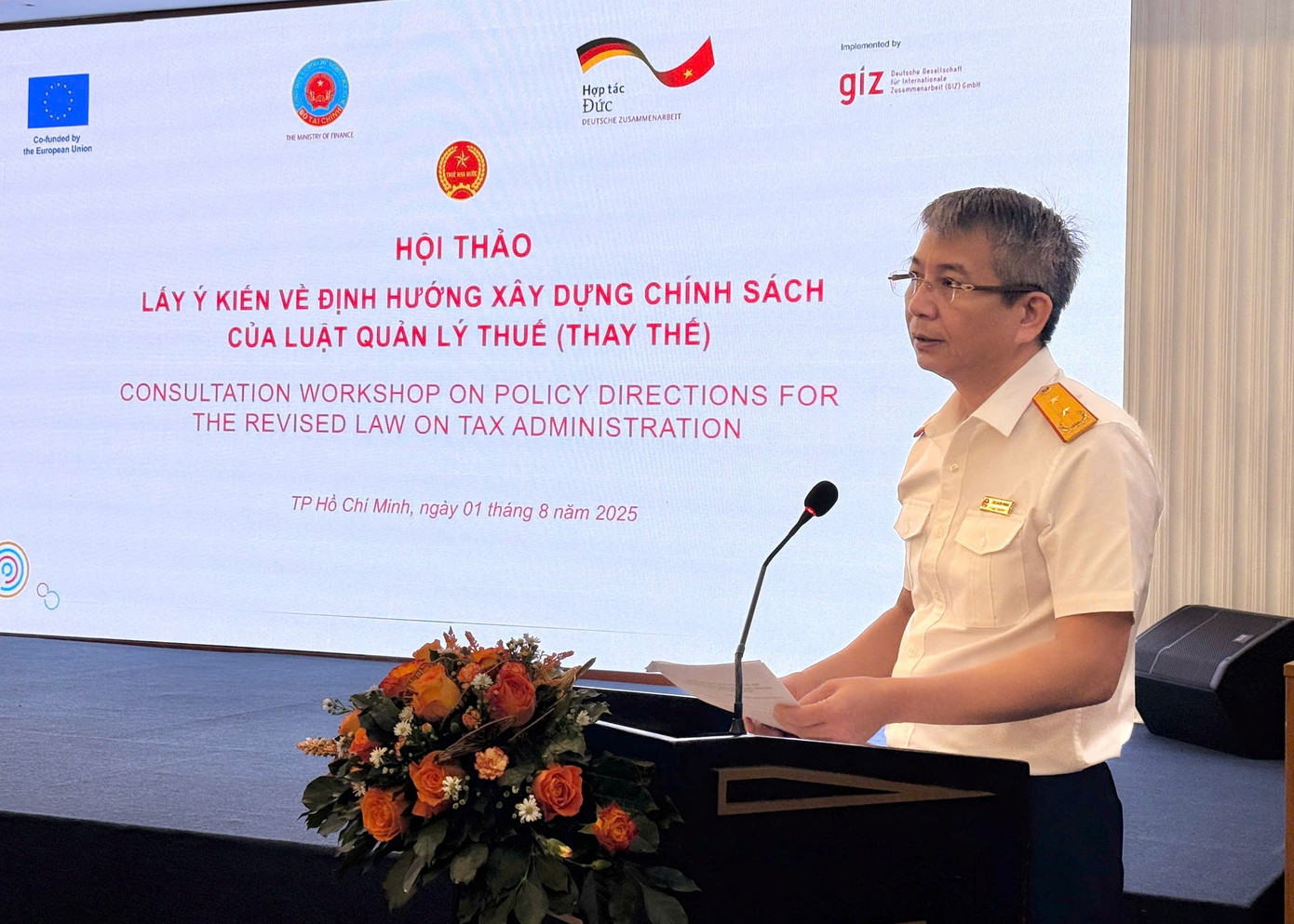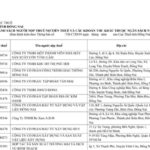“Clarifying” New Regulations: A Necessary Step Towards Simplification and Transparency
On August 1st, at a workshop organized by the Tax Department of the Ministry of Finance in Ho Chi Minh City, Mr. Mai Xuan Thanh, Director of the Tax Department, emphasized the necessity of amending the Law on Tax Administration. The proposed changes aim to align with digitalization, new business models, and the expectation of simpler and more transparent administrative procedures from citizens and enterprises.

Mr. Mai Xuan Thanh, Director of the Tax Department
According to Mr. Thanh, the amendments aim to modernize and apply technology, placing taxpayers at the center of the service. This also involves reforming management processes and improving tax collection effectiveness.
Statistics from the Ministry of Finance reveal that Vietnam has approximately 5 million business households, of which 3.6 million are subject to tax management. However, only around 37,000 households have an annual revenue of 1 billion VND or higher, equivalent to less than 1%. While they are a minority, a survey by the Vietnam Chamber of Commerce and Industry (VCCI) indicates that only about 11% have a clear understanding of the regulations. A concerning 89% of business households remain unclear about compliance.
The survey also highlights that 66% of households worry about increasing costs, 56% fear a decrease in revenue, 64% anticipate lower profits, and a significant 63% plan to downsize their operations. Notably, almost 23% consider temporarily halting their business if the new regulations are not adjusted appropriately.
Mr. Nguyen Van Duc, Vice Chairman of the VCCI’s Legal Department in Ho Chi Minh City, points out that rigidly applying technical regulations will put many small business households in a difficult position. For businesses like restaurants and grocery stores, an annual revenue of 1 billion VND is not uncommon, but operating costs are high, and profits are modest. If they are required to invest in equipment, electronic invoicing software, and maintain complete accounting books, they may find themselves in a situation where revenue is high, but they are still making a loss.

Many small business owners are concerned about connecting to a computerized cash register despite having annual revenue below 1 billion VND.
Given these realities, VCCI representatives suggested increasing the mandatory threshold for electronic invoicing from 1 billion VND to at least 2-3 billion VND per year. They also proposed a minimum one-year transition period, a waiver of penalties during the initial period, and the provision of affordable software and cash registers for smaller businesses.
“We should not impose a one-size-fits-all model. Small business households should be allowed to use simple invoices and not be forced to connect directly with the tax authority immediately. There should be a support mechanism in place, such as tax incentives for the first 6-12 months to help them adapt,” Mr. Duc recommended.
Proposals for Threshold Increase and Extension
From a policy consulting perspective, Ms. Nguyen Thi Cuc, President of the Vietnam Tax Consulting Association, pointed out an inconsistency: “There are cases where a landlord rents out properties in four different provinces, but they are unsure how to register for a tax code. They are confused about compliance and don’t know where to start.”

Many small business owners struggle with the requirement to maintain complete accounting books.
Ms. Cuc also proposed increasing the tax-exempt revenue threshold from the current 100 million VND per year to 200 or 400 million VND. She argued that the old threshold is outdated considering the current price level. “A revenue of 200 million VND per year translates to a daily income of just over 500,000 VND, which is a very low bar, causing many small businesses to fall under the taxable category even though they may not have the actual capacity to pay,” she explained.
Additionally, experts pointed out the challenge posed by the requirement for business households to use electronic invoices while also maintaining complete accounting books. This demand exceeds the capabilities and financial resources of most small business households, who lack accounting expertise and cannot afford external services.
The most popular recommendation from experts is to allow the use of electronic invoices as a substitute for accounting books for micro-businesses and to develop a simplified accounting regime that aligns with administrative reform efforts.
Beyond traditional business households, experts also suggested that the draft law should more clearly address the issue of collecting taxes from cross-border e-commerce. VCCI proposed eliminating the concept of “permanent establishment” and instead introducing a mechanism for tax deduction at the source through banks, e-commerce platforms, and payment units. They further suggested automatically assigning tax codes when users open online stores (on platforms like Facebook, TikTok, Zalo, etc.) and mandating e-commerce platforms, banks, and delivery units to share revenue data with tax authorities, similar to practices in South Korea and China.
The Power of Livestreaming for Small Businesses
The competitive landscape is a challenging environment for small businesses at the best of times, but when the corporate giants are willing to slash prices during their big sales events, it can feel like an impossible battle.




















